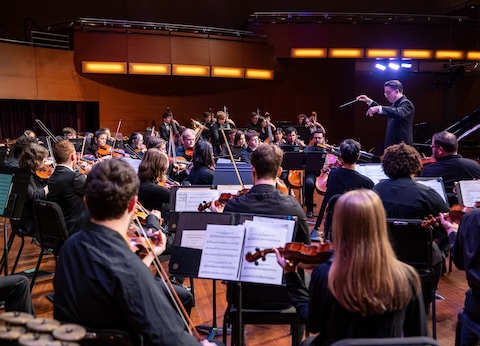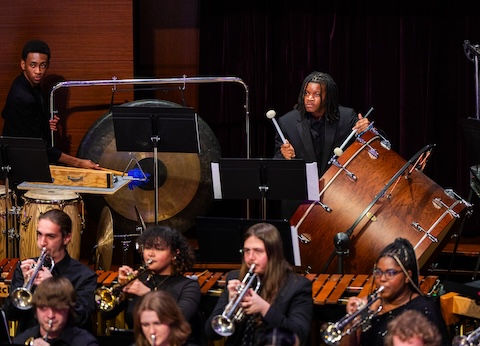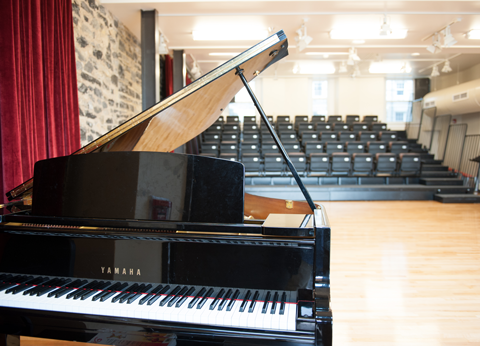Become a 21st-century artist and scholar through our comprehensive Music major.
At JMU, you enjoy a conservatory-level education while taking advantage of the opportunities of a large liberal arts-based university program. As a Music major, you can choose from one of six specialized concentrations: performance, composition, music industry, music education, jazz studies or music theatre. School of Music graduates are equipped with all the tools they need to transform the power of their knowledge into action. That action - teaching, performing, leading, researching, creating - makes a direct impact on the world every day.
The major is a part of the School of Music, an academic unit within the College of Visual and Performing Arts.
The School of Music offers two degree options:
Bachelor of Music (B.M.)
The Bachelor of Music is a professional degree in which at least 65% of its credits are in music.
Students audition as vocalists or instrumentalists to take lessons for 3-4 years of enrollment (depending on concentration), participate in 7-8 semesters of ensembles, and complete at least one recital in addition to focused coursework in music.
Bachelor of Arts in Music (B.A.)
The Bachelor of Arts in Music is a liberal arts degree in which approximately 45% of its credits are in music. The degree allows students to explore their unique interests in music and other fields.
Students complete an interview and, for the Music Industry concentration, a portfolio review for admission to the Bachelor of Arts in Music. In addition to a mix of required and elective courses in music and other subjects, students play in ensembles for four semesters and complete a capstone project guided by a faculty mentor. Students can choose to take vocal/instrumental lessons during their program by auditioning during the application process, but it is not required.
Music
- Degrees Offered:
- B.A. in Music
- B.M. in Music
- B.A. Concentrations:
- Music Industry
- Music Studies
- B.M. Concentrations:
- Composition
- Jazz Studies
- Music Education
- Music Industry
- Music Theatre Emphasis
- Performance
- Minors:
- General Music
- Music & Human Services
- Music Industry
- Jazz Studies
For detailed program information and curriculum, please visit:
Career Planning
A successful career and a meaningful life is what it’s all about. Whether it’s an internship, a great first job or a top graduate school appointment, JMU Dukes make their dreams ignite. You will, too.
Here are current openings available to JMU students.





